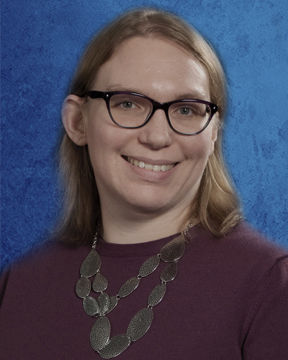Biography
Dr. Beth Lindsey received her AB degree from Bryn Mawr College. Her Masters and Doctorate degrees were earned in Physics department at the University of Washington in Seattle. Her primary research area is Physics Education Research. She has three principle research projects currently underway. One looks at student understanding of energy, particularly the connections they make between energy in physics and in chemistry. Another examines students’ metacognition - how well students recognize what things they know and what they don’t know. Finally, she is researching the development of students’ reasoning skills in introductory physics courses with support from the National Science Foundation.
Research Interests
Physics education research: student understanding of energy in physics and chemistry, development of reasoning skills in introductory physics courses
Publications
Hull, M. M., B. A. Lindsey, M. Archambault, K. Davey, & A. Y. Liu (2016). Unexpected attitudinal growth in a course combining reformed curricula. Physical Review Physics Education Research, 12(1), 10101. https://journals.aps.org/prper/abstract/10.1103/PhysRevPhysEducRes.12.0…
B. A. Lindsey and M. L. Nagel, Do students know what they know? Exploring the accuracy of students
Nagel, M. L. and B. A. Lindsey. “Student use of energy concepts from physics in chemistry courses.” Chemistry Education Research and Practice 16(January 2015): 67-81. http://pubs.rsc.org/en/content/articlelanding/2014/rp/c4rp00184b
Lindsey, B. A. “Student reasoning about electrostatic and gravitational potential energy: An exploratory study with interdisciplinary consequences.” Physical Review Special Topics – Physics Education Research, 10 (January 2014): 013101. http://journals.aps.org/prstper/abstract/10.1103/PhysRevSTPER.10.013101
Lindsey, B. A. and A. Y. Liu. “Combining two reform curricula: An example from a course with well-prepared students.” American Journal of Physics: Physics Education Research Section 81 (July 2013): 545-553. http://ajp.aapt.org/resource/1/ajpias/v81/i7/p545_s1
Lindsey, B. A., P. R. L. Heron, and P. S. Shaffer. “Student understanding of energy: Difficulties related to systems.” American Journal of Physics 80(February 2012): 154-163. http://ajp.aapt.org/resource/1/ajpias/v80/i2/p154_s1
Lindsey, B. A., L. Hsu, H. Sadaghiani, J. W. Taylor, and K. Cummings. “Positive attitudinal shifts with the Physics by Inquiry curriculum across multiple implementations.” Physical Review Special Topics: Physics Education Research 8 (January 2012): 010102. http://prst-per.aps.org/abstract/PRSTPER/v8/i1/e010102
Lindsey, B. A., P. R. L. Heron, and P. S. Shaffer. “Student ability to apply the concepts of work and energy to extended systems.” American Journal of Physics 77 (November 2009): 999-1009. http://ajp.aapt.org/resource/1/ajpias/v77/i11/p999_s1.
Education
Ph.D., Physics, University of Washington, 2008
M.S., Physics, University of Washington, 2004
A.B., Physics, Bryn Mawr College, 2000
